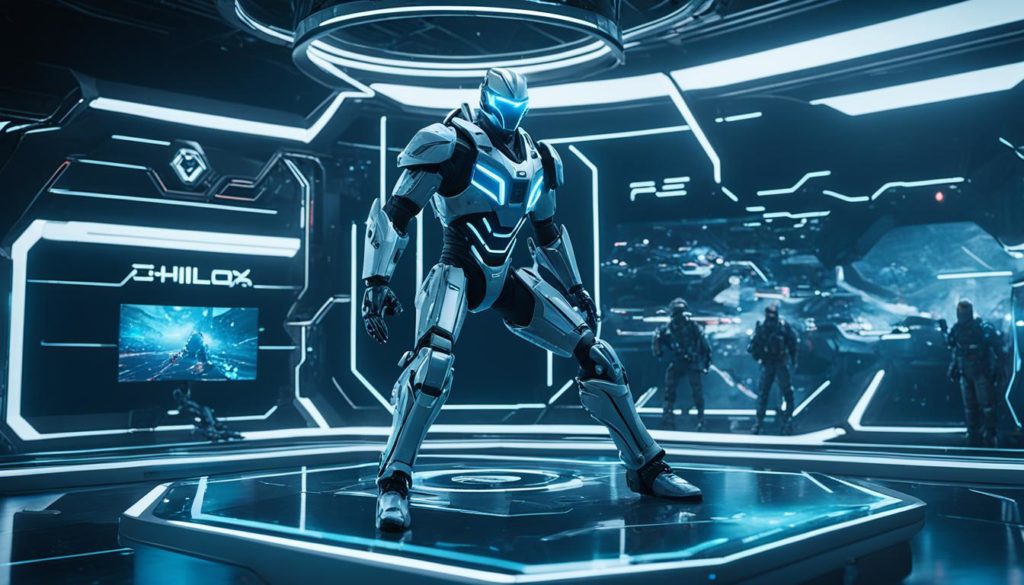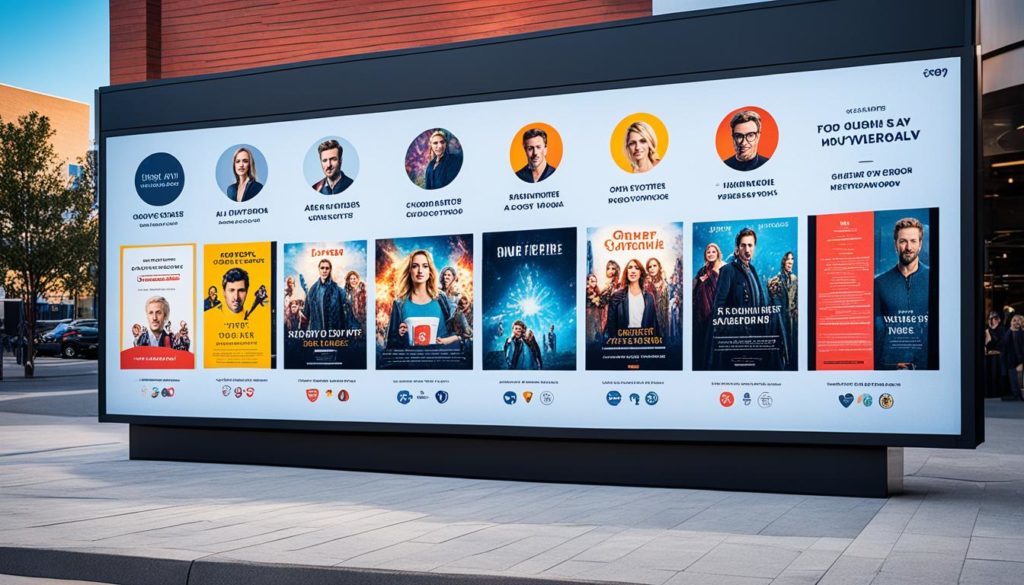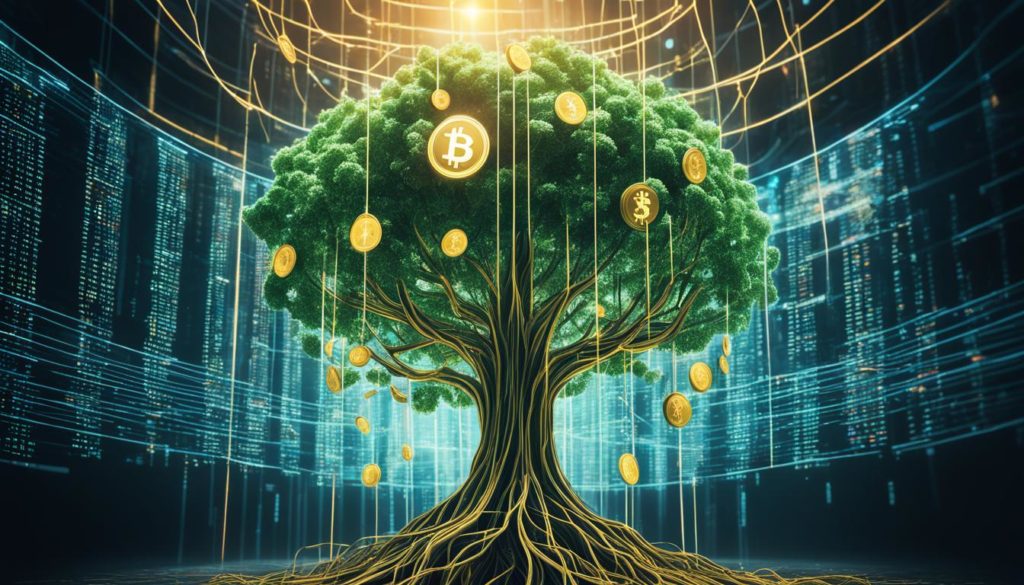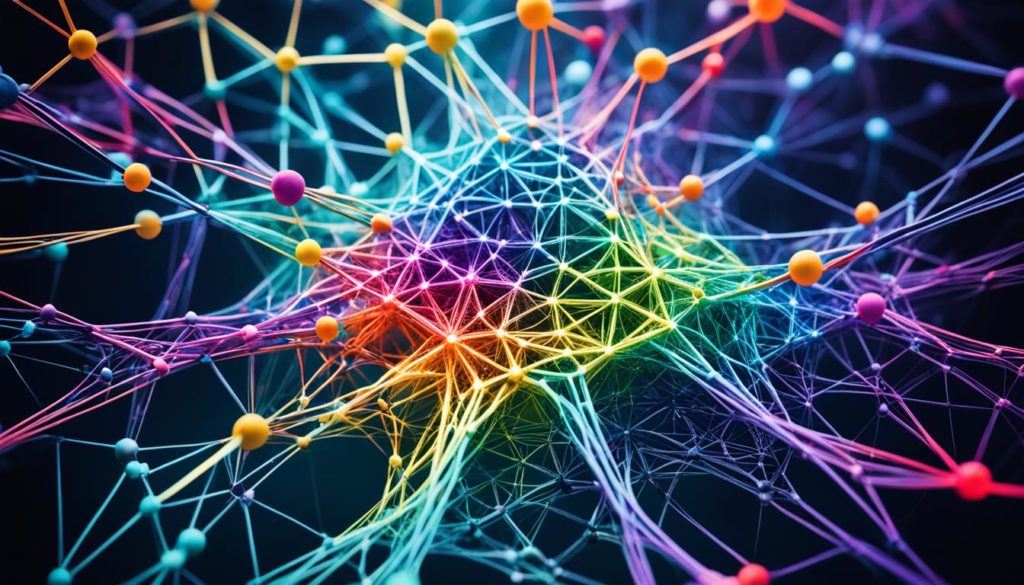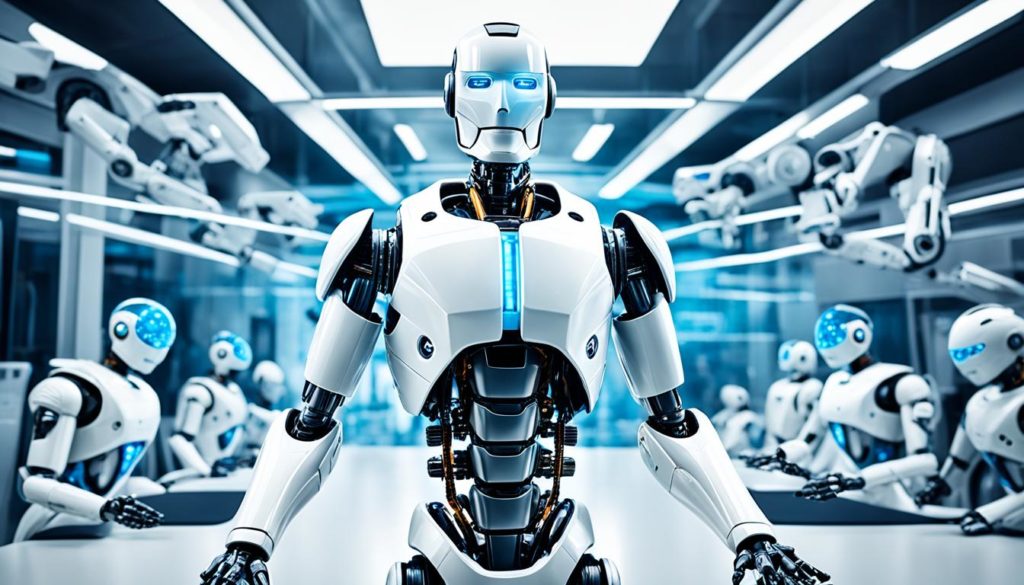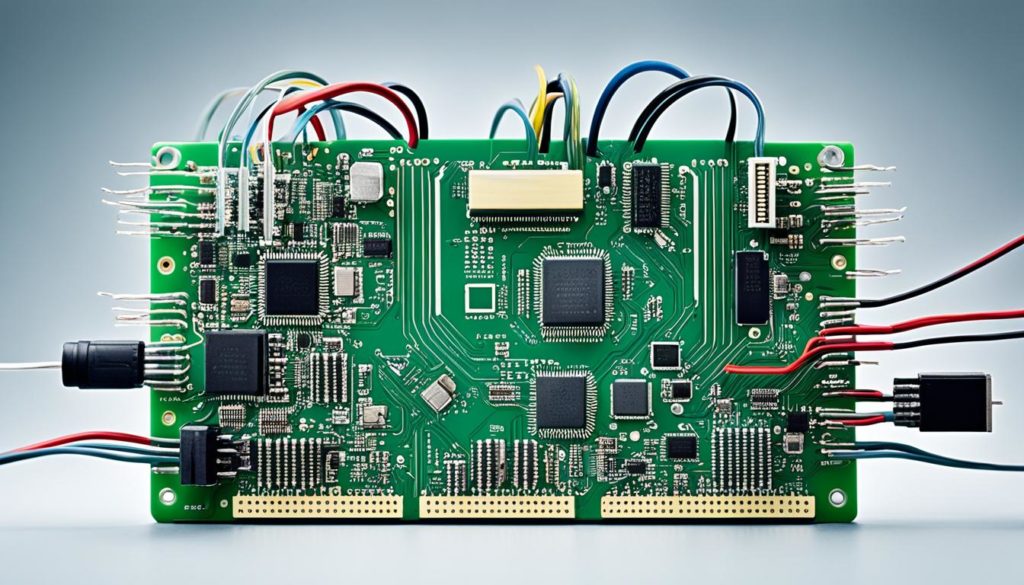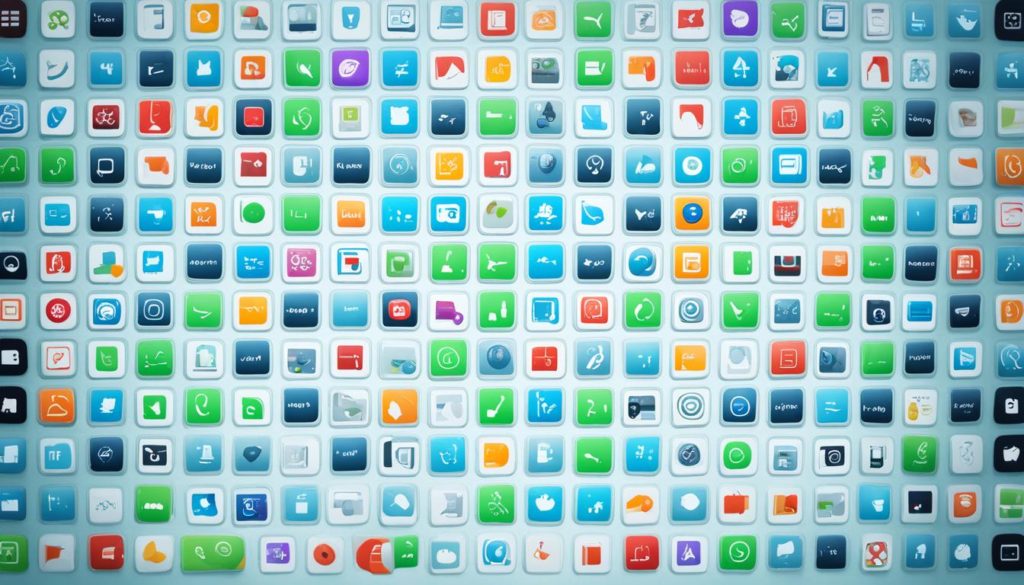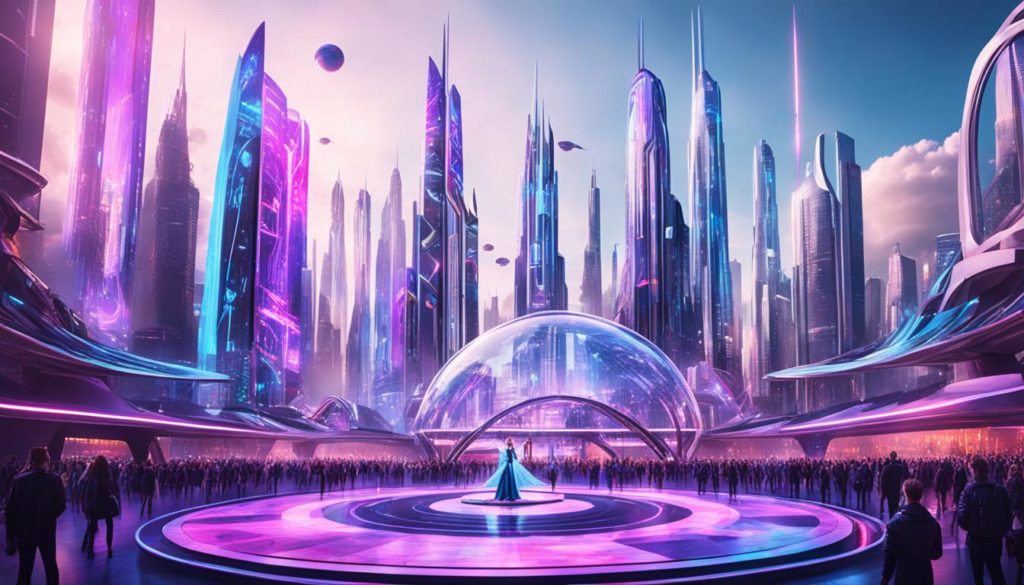
Did you know AI in entertainment, might cut content production costs by 30% by 2025? This isn’t just about saving money. It’s starting a new age of creativity and better ways to work. AI helps write scripts and changes how audiences enjoy shows in real time. It’s changing music and film, with sites like Vitrina leading the way. They offer top AI tools and valuable knowledge for entertainment folks.
Key Takeaways
- AI is projected to reduce content production costs in entertainment by 30% by 2025.
- Artificial intelligence in media is enhancing creativity and efficiency in content creation.
- Vitrina connects entertainment professionals with AI tools and industry insights.
- Digital transformation in music is being accelerated by AI innovations.
- AI is revolutionizing how we consume and engage with entertainment content.
The Rise of AI in Content Creation
AI is changing how we create content. It brings efficiency and creativity to the film industry. From writing scripts to composing music, AI is transforming creative production.
AI-Powered Scriptwriting and Music Composition
Scriptbook and Amper Music are changing the content creation game. Scriptbook uses AI to predict successful screenplays. Meanwhile, Amper Music creates unique soundtracks with AI. These innovations start a new chapter in creative content production.
AI-Generated Plotlines and Storyboards
Tools like OpenAI’s Sora and Microsoft’s VASA-1 unlock the power of AI storylines. They help filmmakers craft detailed storyboards easily. This makes planning simpler and turns unique ideas into reality quicker.
Innovative Companies in AI Content Creation
Leading-edge companies are driving AI in content creation. Scriptbook, Amper Music, OpenAI, and Microsoft are key players. They show how AI storylines and machine learning are vital in filmmaking. This leads to more exciting and captivating content.
Enhancing Visual Effects and Animation with AI
Recent years have seen AI change the game in visual effects and animation. It has made possible what we once thought impossible or too costly. Giants like Pixar and DreamWorks lead in using AI, changing how we see movies, TV, and games.
Motion Capture Technology
AI has made motion capture tech way better, making characters in stories seem real. Companies like Wonder Dynamics and Rokoko use AI to make top-notch effects easy for everyone to use. This is big news for games, where character moves need to look real.
Deep Learning for Character Animation
Deep learning is key for creating realistic character animations. This tech makes animations easier and cheaper than old methods. With AI, we’re breaking new ground in virtual and augmented reality in movies and entertainment.
Improved Background and Scene Generation
AI is also great at making complex backdrops and scenes quickly. Using something called GANs, creators can make detailed places that make stories more thrilling. This shows how vital AI is for top-notch visual results in movies and games today.
Here, we compare how traditional methods stack up against AI in visual effects and animation:
| Aspect | Traditional Methods | AI-Enhanced Techniques |
|---|---|---|
| Character Realism | Manual, Time-Consuming | Automated, High Fidelity |
| Production Costs | High | Reduced |
| Scene Complexity | Limited | Enhanced |
| Accessible to Indie Creators | No | Yes |
AI in Entertainment: Personalized Content Recommendations
In our digital era, AI innovation in the television industry has changed how we enjoy shows and movies. Thanks to advanced algorithms, platforms can now recommend content that fits our tastes perfectly. This improves how much we enjoy watching and keeps us coming back for more.
User Preference Prediction Models
Sophisticated models are at the core of these recommendations. They look at what we’ve watched and liked before to suggest new content we might enjoy. They use smart algorithms that get better at predicting our preferences the more we watch.
Real-Time Content Curation
Real-time content curation has changed the game. It uses techniques to tailor what we see on platforms based on our latest interactions. So, the content changes to match what we like as we use the platform. This keeps content fresh and interesting for us.
Case Studies: Netflix and Spotify
Netflix and Spotify are great examples of this AI at work. Both use real-time content curation and smart algorithms to create a better experience for us:
| Platform | AI Utilization |
|---|---|
| Netflix | Netflix uses machine learning to understand what we like and recommend movies and TV shows that fit our unique tastes. |
| Spotify | Spotify looks at what music we listen to in order to create personalized playlists and help us discover new songs we might like. |
With these advanced tools, these platforms are leading the way in making entertainment personalized. They show what the future of watching and listening can be like.
AI in Production and Post-Production
AI is changing the game in the entertainment industry. It helps with complex schedules and refining footage. Automated editing, sound mixing, and smarter production management are making filmmaking much easier.
Automated Video Editing and Sound Mixing
Automated editing is making post-production smoother. Adobe’s AI, Content-Aware Fill for video, lets editors easily remove unwanted parts from clips. This saves time and reduces costs. AI also improves audio quality to meet high standards, just like a human engineer would.
Intelligent Scheduling and Resource Allocation
Film production’s resource and schedule management can be tough. But, AI helps in making schedules and using resources better. This lowers costs and improves asset use. It removes the stress of manual scheduling, keeping projects on time and budget.
AI Tools in Post-Production Suites
AI tools are now essential in filmmaking. They use machine learning to suggest edits, correct color, and enhance the story. These tools let creators focus on creativity, while AI does the heavy lifting.
With these advances, AI is making post-production better and more creative.
Audience Analytics and Predictive Modeling
Today, knowing what audiences like and foreseeing future trends is key. AI audience insights help companies make smart choices. These choices ramp up involvement and revenue.
Sentiment Analysis of Social Media
Sentiment analysis is crucial for understanding public opinion. Companies such as Affectiva use AI to sift through heaps of social media data. They provide instant insights into how people feel. This helps media companies adjust their content and marketing plans. They can better connect with their audience’s emotions.
Box Office Performance Prediction
Using predictive analytics to guess a movie’s box office performance is exciting. Cinelytic’s AI tools look at past data and current trends to predict earnings. Knowing this ahead of time aids studios in smart planning. They can better decide where to invest and how to market movies.
Real-Time Engagement Tracking
It’s crucial to know how audiences engage with content as it happens. Vitrina gives access to AI tools that track this engagement. Studios can then tweak how they deliver content. This keeps the audience interested and happy.
AI audience insights do more than just personalize; they build a stronger bond between content and viewers. By understanding audience behavior, studios can create meaningful experiences. AI-Driven Marketing and Promotion
In the world of entertainment marketing, AI is changing the game. It allows companies to run highly targeted and effective campaigns. This new way engages audiences better than ever before.
Personalized Trailer Creation
Platforms like Trailer AI use AI to make personalized trailers. They look at data on what people like to watch. This makes trailers more appealing, increasing interest and views. AI’s role in media and entertainment is leading to big changes in how we market content.
AI-Optimized Advertising
AI also helps place ads smarter. It studies lots of data on what consumers do and like. This way, ads reach the right people at the right times. It makes marketing more effective and gives people ads that matter to them. For instance, Netflix uses AI algorithms to suggest promotional content, boosting engagement and keeping viewers interested.
Chatbots for Customer Engagement
Chatbots are key for keeping customers engaged. They’re part of entertainment sites, offering quick help and advice. AI makes these chatbots smarter, so they can suggest content and solve problems well. For example, Disney’s AI chatbots make guest experiences better. This shows how AI is transforming entertainment marketing.
AI is making marketing and promotion more tailored and efficient. It connects with audiences better by understanding what they enjoy and how they behave.
Conclusion
AI is changing the way we tell stories and interact with content. It makes things personal by learning what we like. Companies like Netflix use AI to suggest shows just for you.
AI helps creators see trends and make smart choices, boosting their content. This tech powers tools that gauge how people feel about ads. It even changes how videos are edited, making the process smoother.
The AI market in media and entertainment, worth USD 10.87 billion in 2021, is growing fast. Leaders like Blizzard Entertainment are embracing AI, improving our experiences. AI doesn’t just improve content; it supports creativity and brings more diversity.
AI is starting a new chapter in media that’s full of innovation and diversity. As we move forward, working together and being creative will lead us to a future that’s full of exciting possibilities.
FAQ
How is AI contributing to scriptwriting and music composition in the entertainment industry?
AI is changing how content is created. It helps come up with ideas, scripts, and music. Scriptbook looks at screenplays to see if they could be hits, while Amper Music makes all kinds of soundtracks. This tech makes creating more fun and efficient.
What role does AI play in generating plotlines and storyboards for films?
AI tools like OpenAI’s Sora and Microsoft’s VASA-1 make storyboards and planning visuals. They improve planning before a movie is made. This leads to better use of resources and more creative ideas.
Can you name some innovative companies leading AI content creation?
Companies like Wonder Dynamics and Rokoko are making big strides with visual effects and animation. Along with Move AI, they’re making it easier for everyone to use advanced visuals. This is key for new advances in entertainment.
How is AI enhancing visual effects and animation in movies and games?
AI is making characters look more real and workflow smoother with technologies like motion capture. Big names like Pixar use these advances. They improve visuals while cutting costs.
What improvements does AI offer in background and scene generation?
With AI, making complex scenes and backgrounds becomes easier and cheaper than old methods. It’s also enhancing augmented and virtual reality, making experiences more immersive.
How does AI personalize content recommendations on platforms like Netflix and Spotify?
AI uses algorithms to guess what users will like and customize content for them. It looks at what people watch or listen to. This makes sure users get recommendations they’ll enjoy, keeping them happy and engaged.
In what ways does AI streamline production and post-production processes?
AI makes editing videos and mixing sounds easier by automating these tasks. Adobe’s feature for video shows how AI makes creative work quicker and cheaper.
How does AI help predict box office performance and engage audiences in real-time?
AI tools like Cinelytic predict if a movie will do well and Affectiva tracks how people react to events as they happen. This data helps plan better marketing and content.
What are some AI-optimized marketing and promotional strategies in entertainment?
AI helps tailor trailers and ads to what people want to see. Chatbots talk to customers, offering a more personalized and effective way to market entertainment.
Future App Studios is an award-winning software development & outsourcing company. Our team of experts is ready to craft the solution your company needs.


